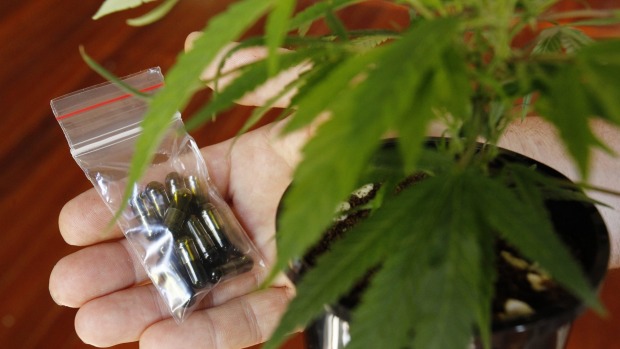
The Australian Medical Association of Queensland has urged caution following confirmation of a medicinal cannabis trial in the state.
AMAQ president Chris Zappala said he welcomed the trial, which Health Minister Cameron Dick revealed would likely be held at Brisbane’s Lady Cilento Children’s Hospital.
The move was met with approval by Queensland Council of Civil Liberties president Michael Cope on Tuesday, but he said it could have gone “a lot further and a lot quicker” and said a trial was not necessary.
Dr Zappala urged more caution, saying medicinal cannabis, like any drug, could come with risks.
“The recreational use (of cannabis) has created inappropriate laissez-faire attitude with regards to how this might go, and that’s one of the problems,” he said.
Dr Zappala said the trial was needed to determine the appropriate dosing and the right formulation of the medicinal cannabis.
“The key point is that we need to make sure we submit medicinal marijuana to the same rigorous testing, peer review and that it meets the same standards of risk benefit that we expect of all our medications,” he said.
“It’s only then that we can as a community and as a profession of doctors say ‘yes, we think this is a good thing’ and actively recommend it to patients, because that’s obviously a very different thing to someone on their own deciding they’re going to go off and try it.”
Dr Zappala said there was a view that doctors were not open to new ideas and opportunities.
“That’s just not true at all,” he said.
“But what we do want to see is appropriate scientific understanding, because we need to understand not just the potential benefits but also the risks.
“We know, for example, that marijuana can contribute to mental illness and the long-term effects of prescribing a person marijuana are not known and that needs to be known, particularly if we’re talking about kids who might wind up on marijuana of some form for years during their stage of development.”
Dr Zappala said it was still unclear whether there was a “completely benign formulation” of cannabis.
“Obviously, you can smoke it and get a high, but to suggest you can put it in an oil form (and) all of a sudden the bad effects just drop away and there’s no problem, well, we don’t know that and that’s one of the reasons we have to have a trial and have to measure the risks against the benefits,” he said.
Dr Zappala said all medicinal cannabis use needed to be regulated and strictly by prescription only.
“This notion that people might be able to grow it for medicinal purposes and that’s going to be manageable and controllable, that just doesn’t make good sense to us,” he said.
“Because that’s obviously still open to potential abuse, so although I deeply sympathise with people who have intractable pain or recalcitrant epilepsy, those sorts of things, as a doctor you’re always very, very worried about the potential harm you might cause.
“That’s what we need to be very aware of before we actually write a script about this stuff.”
